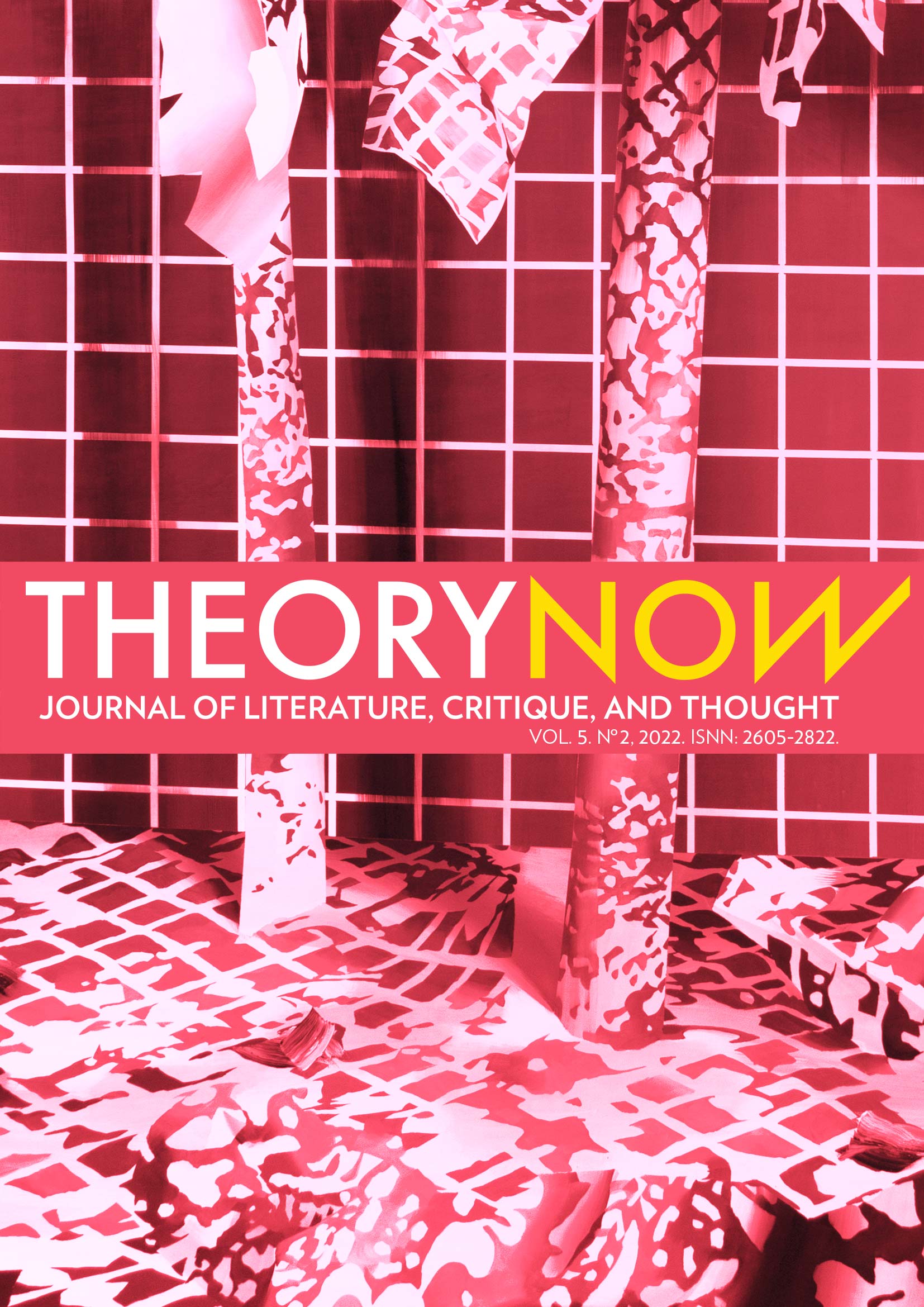Materialismo y finitud: El marxismo de Terry Eagleton
DOI:
https://doi.org/10.30827/tn.v5i2.24462Palabras clave:
Terry Eagleton, Materialismo, Finitud, Marxismo, Herbert McCabe, LacanResumen
Este ensayo se centra en el cambio de énfasis -ya anunciado en La estética como ideología (1997) y evidente en Dulce violencia (2003)- que se produjo en la escritura de Eagleton en el cambio de siglo: de mostrar un escepticismo historicista acerca de los universales a abogar por el reconocimiento de la criatura humana (la fragilidad, el sufrimiento, la muerte) sin la cual cualquier proyecto político fracasaría. Este cambio coincidió con un acercamiento a una versión tomista de la religión cristiana que reflejaba la influencia en Eagleton de su amigo el dominico Herbert McCabe y con un profundo interés por Jacques Lacan. El artículo argumenta que este cambio no afectó a la fe marxista de Eagleton ni implicó rehuir la acción política. Más bien, el giro afectó a la base materialista de la propuesta de Eagleton de una vida justa. La apelación a las fuerzas existenciales supuso, por un lado, una crítica a la una crítica al historicismo de izquierdas y al culto posmoderno de la cultura y el relativismo y, por otro, un intento de reforzar la crítica marxista al capitalismo y la resistencia contra el fundamentalismo, el nihilismo y el consumismo. Para proponer su idea de la vida justa, Eagleton se apropia tanto de la noción de caridad cristiana –la idea de autorrealización a través del amor y la solidaridad–, junto con la concepción tomista de la moral arraigada en el cuerpo, y el imperativo de Lacan de “no renunciar al deseo”.
Descargas
Citas
Adorno, Theodor W. Negative Dialectics. London, Routledge, 1990.
Anderson, Perry. “Components of the National Culture”, New Left Review, vol. 50, no. 1,1968, pp. 3-57.
Althusser, Louis. Essays in Self-Criticism. London, NLB, 1976.
Badiou, Alain. Being and the Event. London, Continuum, 2006.
Boltansky, Luc, and Eve Chiapello. The New Spirit of Capitalism. London, Verso, 2006.
Burkett, Paul. Marx and Nature: A Red and Green Perspective. Chicago, Haymarket, 2014.
Callinicos, Alex. Equality. Cambridge, Polity Press, 2000.
____. The Resources of Critique. Cambridge, Polity Press, 2006.
____. “Two Cheers for Enlightenment Universalism: Or Why It’s Hard to Be an Aristotelian Revolutionary”. Virtue and Politics: Alasdair MacIntyre’s Revolutionary Aristotelianism, Paul Blackledge and Kelvin Knight (eds.). Notre Dame, Notre Dame University Press, 2011, pp. 54-78.
Callinicos, Alex, Stathis Kouvelakis and Lucía Pradella (eds.). The Routledge Handbook of Marxism and Post-Marxism. New York, Routledge, 2020.
Dawkins, Richard. The God Delusion. New York, Bantam, 2006.
Eagleton, Terry. Criticism and Ideology. London, NLB, 1976.
____. “Wittgenstein’s Friends”, New Left Review, vol. 135, no. 1, 1982, pp. 64-90.
____. Literary Theory: An Introduction. Oxford, Blackwell, 1983.
____. The Ideology of the Aesthetic. Oxford, Blackwell, 1990.
____. Marx and Freedom. London, Phoenix, 1997.
____. The Gatekeeper. London, Allen Lane, 2001.
____. Sweet Violence. Oxford, Blackwell, 2003.
____. After Theory. London, Allen Lane, 2004.
____. Holy Terror. Oxford University Press, 2006.
____. “Lunging, Flailing, Mispunching”, London Review of Books, vol. 28, no. 20, 19 October 2006, pp. 32-34.
____. “Jameson and Form”, New Left Review, vol. 59, no. 2, 2009, pp. 123-137.
____. Reason, Faith, and Revolution: Reflections on the God Debate. New Haven, Yale University Press, 2010.
____. Why Marx was Right. New Haven, Yale University Press, 2011.
____. Materialism. New Haven, Yale University Press, 2016.
____. “When Will Christ Come Again?”, New Blackfriars, vol. 102, no. 1099, 2021, pp. 318-321.
Engels, Friedrich. “Dialectics of Nature”. Collected Works, XXV. Karl Marx and Friedrich Engels. Moscow, Progress, 1987, pp. 313-587.
Foster, John Bellamy. Marx’s Ecology: Materialism and Nature. New York, Monthly Re- view Press, 2000.
____. The Return of Nature: Socialism and Ecology. New York, Monthly Review Press, 2020.
Lukács, Georg. History and Class Consciousness. London, Merlin Press, 1990. MacIntyre, Alasdair. Dependent Rational Animals: Why Human Beings Need the Virtues. London, Duckworth, 1999.
Marx, Karl. “Contribution to the Critique of Hegel’s Philosophy of Law. Introduction”. Collected Works, III. Karl Marx and Friedrich Engels. Moscow, Progress, 1975, pp. 175-187.
____. “Economic & Philosophic Manuscripts of 1844”. Collected Works, III. Karl Marx and Friedrich Engels. Moscow, Progress, 1975, pp. 229-346.
McCabe, Herbert. Law, Love, and Language. London, Sheed & Ward, 1968.
____. God Still Matters. London, Continuum, 2002.
Saito, Kohei. Karl Marx’s Ecosocialism: Capitalism, Nature, and the Unfinished Critique of Political Economy. New York, Monthly Review Press, 2017.
Timpanaro, Sebastiano. On Materialism. London, NLB, 1975.
Trotsky, Leon Davidovitch. “Class and Art”. On Literature and Art. New York, Pathfinder, 1970, pp. 63-82.
Wood, James. “God in the Quad”, The New Yorker, 31 August 2009, pp. 75-79.
Descargas
Publicado
Cómo citar
Número
Sección
Licencia
Theory Now Journal of Literature, Critique, and Thought es una publicación de acceso abierto e inmediato totalmente gratuita, tanto para lectorxs como para autorxs. Lxs autorxs no pagan ningún tipo de tasa por el proceso editorial de sus artículos. Permitimos la lectura, descarga, copia, distribución, impresión, búsqueda, enlace o reutilización con fines no comerciales de todos los trabajos publicados, siempre que se citen la autoría, la revista y el órgano editor. Todo material intelectual publicado en esta revista se encuentra protegido con una licencia de Creative Commons Reconocimiento-NoComercial .
Recomendamos encarecidamente la difusión de los artículos en redes sociales (Facebook, Twitter, LinkedIn, etc.) y científicas (ResearchGate, Academia.edu, etc.), repositorios institucionales universitarios y otros repositorios públicos, blogs y webs personales o institucionales, Google Scholar, ORCID, ResearchID, ScopusID, etc. En cualquier caso, la propiedad intelectual de los artículos y los posibles derechos económicos derivados de ellos son exclusivamente de sus autores.













